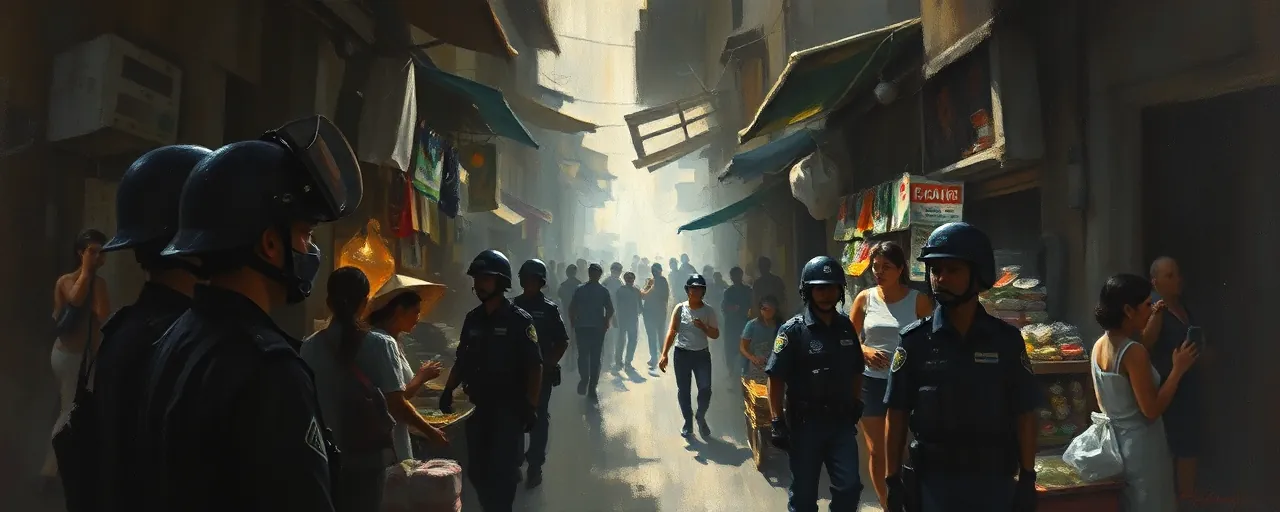A Vote Amid Violence
Ecuadorians went to the polls on April 13, 2025, against a backdrop of unrelenting violence. Incumbent President Daniel Noboa secured reelection in a tense runoff, defeating Luisa González, a leftist candidate promising jobs and social programs. The vote unfolded under a state of emergency in seven provinces, including Quito, where drug-related killings have spiked. For many voters, the choice boiled down to one issue: safety. Noboa’s promise of an iron grip on crime resonated, even as questions lingered about its cost.
The election wasn’t just about picking a leader; it was a referendum on how to tame a crisis that’s turned Ecuador, once a quiet corner of South America, into a battleground for drug cartels. Homicides hit a grim peak in January 2025, with 781 killings, and 2024 wasn’t much better, recording nearly 7,000 murders. Noboa’s militarized approach, blending police and army patrols, has notched some wins, like 65,000 arrests last year. Yet, the bloodshed persists, and voters faced a stark divide over what comes next.
Security Takes Center Stage
Noboa campaigned on a hardline stance, doubling down on his 2024 declaration of an internal armed conflict. His government labeled gangs like Los Choneros as terrorists and rolled out the Security Bloc, a joint police-military effort targeting crime hotspots. The results are mixed: an 18% drop in homicides last year sounds promising, but the numbers still dwarf those of a decade ago, when Ecuador was among the region’s safest. Cocaine seizures have soared, a nod to Ecuador’s role as a transit hub for drugs flowing from Colombia and Peru to the U.S. and Europe.
Not everyone’s sold on the strategy. Human rights groups point to allegations of abuse by security forces, arguing that militarization sidesteps deeper issues like corruption and poverty. González, Noboa’s opponent, pitched a different path, focusing on economic opportunity to undercut crime’s roots. Her defeat doesn’t silence those voices. Analysts note that without addressing why young people join gangs—unemployment, weak institutions—the violence could keep simmering, no matter how many soldiers hit the streets.
A Tightening U.S. Partnership
Noboa’s win also cements Ecuador’s role as a key U.S. ally. The United States has poured over $93 million into Ecuador’s security efforts, from patrol boats to intelligence sharing. Joint operations target the same cartels fueling violence on both sides of the hemisphere. Ecuador’s ports, now critical nodes for global drug routes, see U.S.-backed interdiction teams working alongside local forces. This partnership, built on years of growing trust, positions Ecuador as a linchpin in Washington’s fight against narcotrafficking.
Migration ties the two nations closer still. Violence and economic strain pushed 95,000 Ecuadorians to flee in 2024, many aiming for the U.S. border. Stricter U.S. policies, including expedited removals, have sent some back, while Ecuador cooperates on repatriation. Noboa’s openness to U.S. support, even floating the idea of American troops on Ecuadorian soil, marks a bold shift from past skepticism of foreign involvement. But reliance on U.S. aid raises questions about sovereignty and whether local solutions are being sidelined.
What Lies Ahead
Noboa’s reelection hands him a mandate to press forward, but the road’s anything but smooth. His Security Bloc and U.S. backing have curbed some violence, yet cartels adapt fast, exploiting weak prisons and corrupt officials. The economy, battered by crime and global headwinds, needs a lift to keep people from gangs or migration trails. Balancing human rights with public demand for order is another tightrope, one where missteps could erode trust.
For the U.S. and Ecuador, the partnership offers mutual gains but no easy fixes. Voters have spoken, betting on Noboa’s vision of strength. Whether it delivers a safer Ecuador or entrenches a cycle of conflict depends on choices yet to be made. Both nations, bound by shared threats, will be watching closely.
